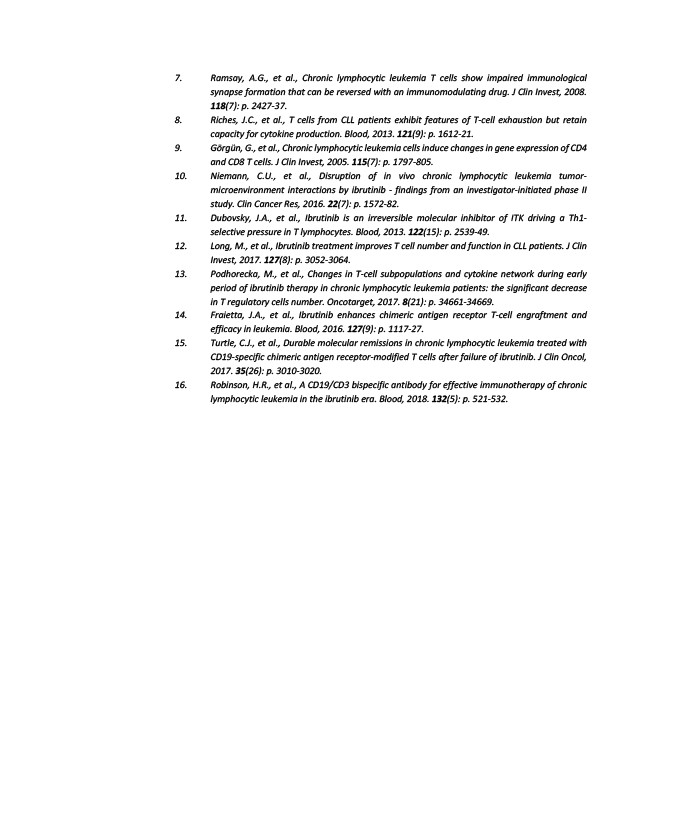
7. Ramsay, A.G., et al., Chronic lymphocytic leukemia T cells show impaired immunological
synapse formation that can be reversed with an immunomodulating drug. J Clin Invest, 2008.
118(7): p. 2427-37.
8. Riches, J.C., et al., T cells from CLL patients exhibit features of T-cell exhaustion but retain
capacity for cytokine production. Blood, 2013. 121(9): p. 1612-21.
9. Görgün, G., et al., Chronic lymphocytic leukemia cells induce changes in gene expression of CD4
and CD8 T cells. J Clin Invest, 2005. 115(7): p. 1797-805.
10. Niemann, C.U., et al., Disruption of in vivo chronic lymphocytic leukemia tumor-microenvironment
interactions by ibrutinib - findings from an investigator-initiated phase II
study. Clin Cancer Res, 2016. 22(7): p. 1572-82.
11. Dubovsky, J.A., et al., Ibrutinib is an irreversible molecular inhibitor of ITK driving a Th1-
selective pressure in T lymphocytes. Blood, 2013. 122(15): p. 2539-49.
12. Long, M., et al., Ibrutinib treatment improves T cell number and function in CLL patients. J Clin
Invest, 2017. 127(8): p. 3052-3064.
13. Podhorecka, M., et al., Changes in T-cell subpopulations and cytokine network during early
period of ibrutinib therapy in chronic lymphocytic leukemia patients: the significant decrease
in T regulatory cells number. Oncotarget, 2017. 8(21): p. 34661-34669.
14. Fraietta, J.A., et al., Ibrutinib enhances chimeric antigen receptor T-cell engraftment and
efficacy in leukemia. Blood, 2016. 127(9): p. 1117-27.
15. Turtle, C.J., et al., Durable molecular remissions in chronic lymphocytic leukemia treated with
CD19-specific chimeric antigen receptor-modified T cells after failure of ibrutinib. J Clin Oncol,
2017. 35(26): p. 3010-3020.
16. Robinson, H.R., et al., A CD19/CD3 bispecific antibody for effective immunotherapy of chronic
lymphocytic leukemia in the ibrutinib era. Blood, 2018. 132(5): p. 521-532.